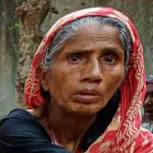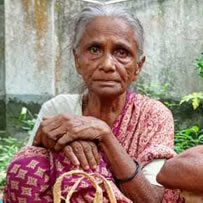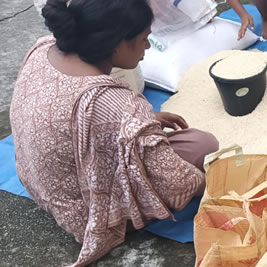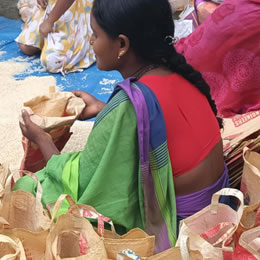How Lotus Ministry Trust is Combating Food Insecurity in Bangladesh
- David Burgess
- Jul 17, 2025
- 4 min read
Addressing Food Insecurity: The Role of Lotus Ministry Trust in Bangladesh
Lotus Ministry Trust Volunteers Distribute Food Aid
Bangladesh, a densely populated country in South Asia, has long faced challenges related to food insecurity. Agricultural constraints, natural disasters, and economic pressures have periodically threatened the steady availability of essential food items. Among the staples, rice stands out as the primary source of nutrition for the majority of Bangladesh's population. To counter food scarcity and malnutrition, various organizations have stepped forward, delivering much-needed support. One such entity is Lotus Ministry Trust, which has made significant contributions through its rice food aid programs across Bangladesh.
The Importance of Rice in Bangladesh’s Diet
Rice is not just a staple food in Bangladesh; it embodies cultural, economic, and nutritional importance. Approximately 75% of the daily caloric intake of an average Bangladeshi comes from rice and rice-based products. The country produces millions of tons of rice annually, making it a cornerstone of food security and rural livelihoods. However, due to widespread poverty and periodic natural calamities such as floods and cyclones, many vulnerable communities still struggle to secure enough rice for daily consumption. These challenges create a constant demand for organized rice aid in Bangladesh to ensure the sustenance of those living on the margins.
Lotus Ministry Trust: A Beacon of Hope
Lotus Ministry Trust, a philanthropic organization with a focus on humanitarian aid, has established itself as a key player in providing rice food aid in Bangladesh. Operating with a mission to alleviate hunger and promote well-being, the trust targets impoverished families, orphanages, slum dwellers, and disaster-affected communities. Their efforts are not limited only to distribution but also extend to advocacy, education, and community empowerment, creating sustainable foundations for food security.
The trust’s work is anchored in a hands-on approach that emphasizes accountability and transparency. This ensures that rice aid in Bangladesh reaches those genuinely in need and is effectively monitored for impact.
Rice Food Aid Distribution: Impact and Methods
In times of crisis, community support can make a vital difference. Many families in Bangladesh are currently facing severe food shortages and urgently need assistance. If you feel compelled to contribute and help alleviate their suffering, You can help by donating to ongoing food relief efforts. Every contribution goes directly towards providing essential food supplies to those in dire need, helping to restore hope and stability during these challenging times.
The distribution of rice food aid in Bangladesh by Lotus Ministry Trust is executed through carefully coordinated programs. These programs often involve:
1. Need Assessment: Detailed surveys to identify the most vulnerable groups, including women-headed households, elderly people, and disabled individuals.
2. Logistical Coordination: Partnering with local NGOs and community leaders to ensure equitable and timely distribution of rice supplies.
3. Direct Food Aid: Monthly or periodic allocations of rice quantities sufficient for family sustenance, usually measured in kilograms based on household size.
4. Disaster Relief: Rapid deployment of rice supplies following natural calamities to prevent hunger spikes in affected regions.

Lotus Ministry Trust Rice Food Aid Recipients
The impact of these measures has been tangible. Thousands of families report improved food security, reduced malnutrition in children, and greater economic stability as they can allocate limited resources to other essential needs such as healthcare and education.
Challenges Faced in Rice Aid Programs
Despite the commendable work of Lotus Ministry Trust, delivering rice food aid in Bangladesh is not without challenges. Bangladesh’s geography and climatic vulnerabilities often make transportation and storage of rice a logistical hurdle. Seasonal floods can disrupt distribution routes, while fluctuating rice prices affect procurement budgets.
Moreover, the socio-economic diversity of the population requires sensitive targeting to avoid exclusion errors. Ensuring that aid reaches marginalized populations such as ethnic minorities and remote rural communities demands sustained field presence and local collaboration.
Lotus Ministry Trust has addressed these challenges by establishing localized supply chains, investing in community-based volunteer networks, and employing technology for real-time tracking of aid disbursements. These adaptations have improved the efficiency and effectiveness of rice aid in Bangladesh.
Community Empowerment Through Rice Aid
Beyond immediate hunger relief, Lotus Ministry Trust views rice aid as part of a larger strategy for community development. By providing reliable access to rice, families can build resilience to future shocks. The trust complements food aid with educational workshops on nutrition, sustainable agriculture, and financial literacy. These efforts aim to break the cycle of poverty and dependence.
Furthermore, the trust encourages beneficiary communities to participate in monitoring and feedback mechanisms, fostering a sense of ownership and trust. Women’s groups often play a crucial role in this participatory approach, organizing local distribution points and nutrition screenings.
Testimonials and Quotable Insights
One recipient of Lotus Ministry Trust’s rice aid program shared her experience: “When floods washed away our crops, we feared starvation. The rice support from Lotus Ministry Trust was like a lifeline—it gave us hope and strength to rebuild.”
Lotus Ministry Trust’s director once said, “Providing rice is not just about filling stomachs; it is about nurturing hope and dignity.”
Such sentiments highlight the profound emotional and societal value embedded in food aid efforts.
The Broader Implications: Rice Aid in Bangladesh and Sustainable Development
Rice aid serves as a buffer against the volatility induced by climate change. As Bangladesh endures increasingly severe weather events, the presence of established food aid networks is crucial in safeguarding public health.
Collaborations and Future Prospects
Recognizing the scale of Bangladesh’s needs, Lotus Ministry Trust has cultivated partnerships with government bodies, international donors, and corporate sponsors. These collaborations expand resource pools and enhance program reach.
Looking ahead, the trust aims to incorporate more technology-driven solutions, such as mobile registry systems and digital payments, to streamline rice aid distribution. There is also a growing focus on integrating rice aid with livelihood programs, encouraging farming innovations and crop diversification.

Conclusion
Rice food aid in Bangladesh remains an indispensable component of humanitarian response and food security strategies. Lotus Ministry Trust’s dedicated involvement exemplifies how focused, community-oriented efforts can make a measurable difference. Through logistical expertise, sensitive targeting, and complementary empowerment initiatives, the trust not only provides rice but fosters resilience and hope among Bangladesh’s most vulnerable populations.
As global challenges related to climate, economics, and health continue to affect food availability, the role of rice aid in Bangladesh will only grow in importance. Organizations like Lotus Ministry Trust set a standard for compassionate and effective intervention in this vital sector.













Comments